Press Release Archive
An archive of press releases from Smithsonian's National Zoo and Conservation Biology Institute.
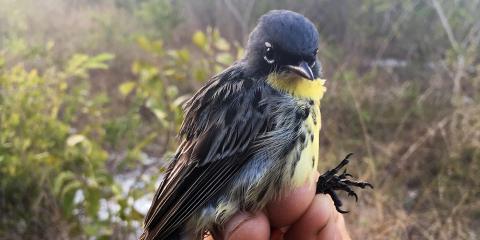
2022 U.S. State of the Birds Report Reveals Widespread Losses of Birds in All Habitats–Except for One
A newly released State of the Birds report for the United States reveals a tale of two trends, one hopeful, one dire.
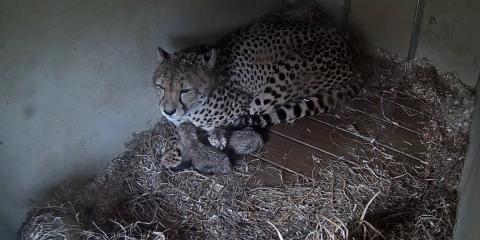
Cheetah Cubs Are Born at Front Royal Campus, Smithsonian’s National Zoo and Conservation Biology Institute
Carnivore keepers in Front Royal, Virginia, welcomed a litter of two cheetah cubs. First-time mother, 4-year-old female Amani, birthed the cubs Oct. 3 around 9:17 p.m. and 11:05 p.m. ET. They appear to be strong, active, vocalizing and nursing well. Animal care staff are closely monitoring Amani and...
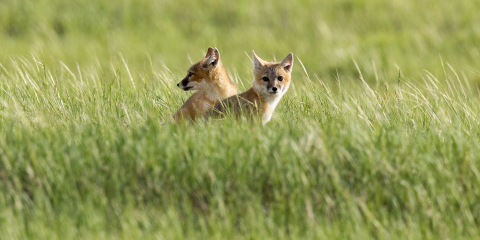
Tribes Successful with Swift Fox Reintroduction Program at Fort Belknap
The Fort Belknap Indian Community commemorated three years of its swift fox recovery program with the release of three swift foxes on Tribal lands, bringing the total to 103 recovered back to these prairie grasslands.
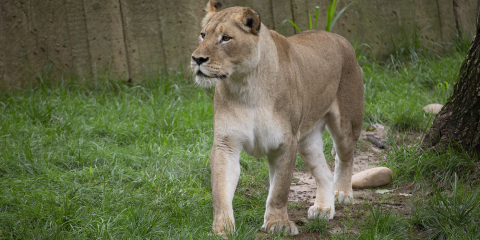
Lion Dies at Smithsonian’s National Zoo and Conservation Biology Institute
Staff at the Smithsonian’s National Zoo and Conservation Biology Institute are grieving the loss of Nababiep, a female African lion affectionately called Naba, who was humanely euthanized Sept. 26. She was 18 years old.
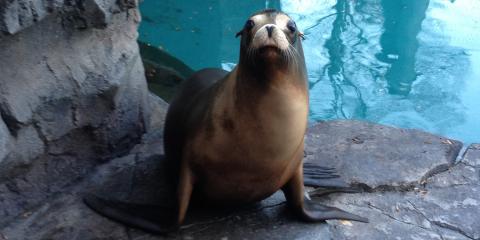
Sea Lion Dies at Smithsonian’s National Zoo and Conservation Biology Institute
Staff are mourning the loss of Calli, a 17-year-old female California sea lion, who died Sept. 7.
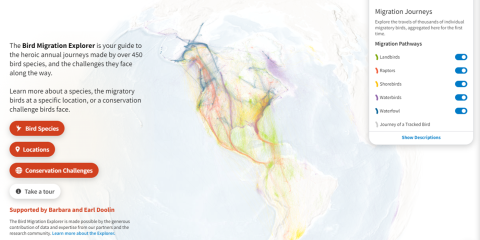
First-of-its-Kind Digital Platform Reveals Migration Data for Birds Across the Western Hemisphere Just in Time for Fall Migration
The Bird Migration Explorer, a state-of-the-art digital platform, allows users to see the most complete data collected on migratory species in their neighborhoods and where those birds go throughout the year.
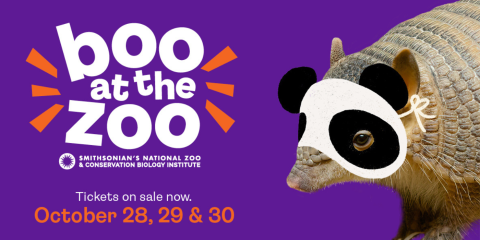
Boo at the Zoo Is Back Oct. 28, 29 and 30 at Smithsonian’s National Zoo and Conservation Biology Institute
Not a trick, only the sweetest treat: Boo at the Zoo, the beloved family-friendly Halloween event at the Smithsonian’s National Zoo and Conservation Biology Institute, sponsored by Mars Wrigley Confectionery, is back Oct. 28, 29 and 30 from 5:30 to 8:30 p.m.
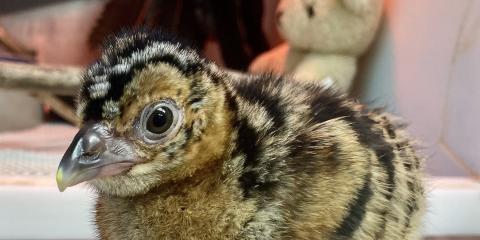
Two Critically Endangered Blue-Billed Curassows Hatch at Smithsonian’s National Zoo and Conservation Biology Institute
For the first time, Bird House keepers at Smithsonian’s National Zoo and Conservation Biology Institute are celebrating the hatching of two critically endangered blue-billed curassows.
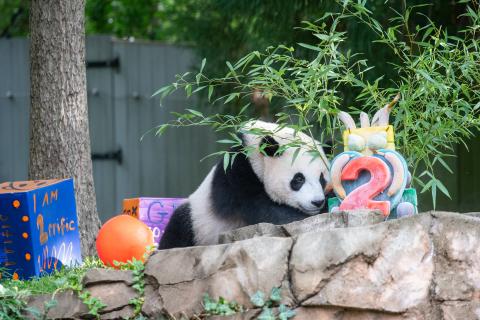
Giant Panda Xiao Qi Ji Celebrates Second Birthday at Smithsonian's National Zoo and Conservation Biology Institute
This morning, the Smithsonian’s National Zoo and Conservation Biology Institute celebrated giant panda cub Xiao Qi Ji’s second birthday.
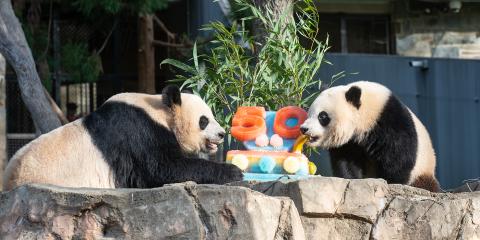
Media Advisory: Giant Panda Xiao Qi Ji’s Second Birthday Celebration Aug. 21
The Zoo’s giant panda cub, Xiao Qi Ji, will celebrate his second birthday Aug. 21 with a specially tailored fruitsicle cake.
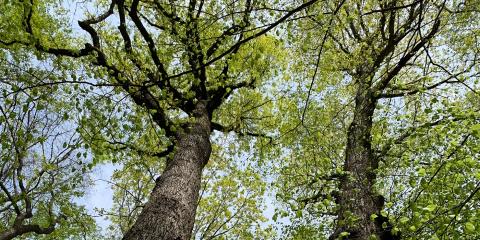
New Research Reveals Forest Mitigation of Climate Change Is Overestimated
In recent decades, global forest tree growth has dramatically slowed the pace of atmospheric carbon dioxide accumulation and climate change.
Brew at the Zoo Returns Sept. 8 at Smithsonian’s National Zoo and Conservation Biology Institute
On Thursday, Sept. 8, from 6:30 p.m. to 9:30 p.m., raise your glass for conservation and enjoy unlimited tastings from more than 45 breweries and cideries.
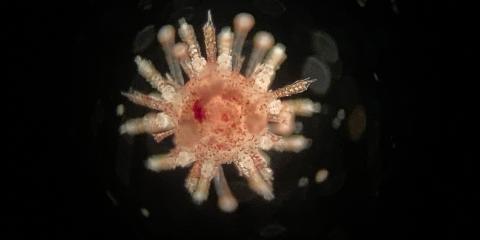
Tropical Sea Urchin Is Grown in Lab for First Time
For the first time, a tropical sea urchin — a species intrinsically linked to the long-term health and survival of coral reefs — was grown successfully from cryopreserved embryos.
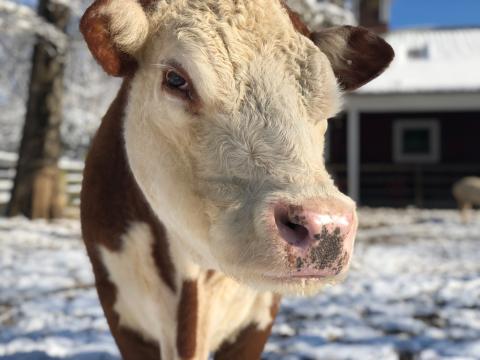
Hereford Dies at Smithsonian’s National Zoo
Kids’ Farm keepers at the Smithsonian’s National Zoo and Conservation Biology Institute are mourning the loss of Rose—a 19-year-old female Hereford who was humanely euthanized July 25.
Smithsonian Statement: WordFly Data Security Incident
We want to let you know about an incident that occurred at a company that we use to send email communications to our community about our programs and events. The company, WordFly, was the victim of a ransomware attack.
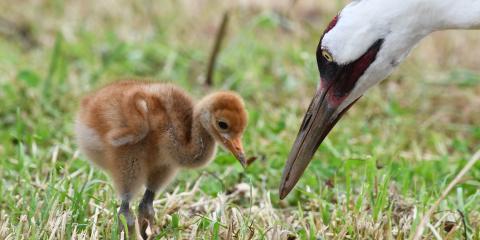
First Whooping Crane Hatches at Smithsonian Conservation Biology Institute
For the first time, a whooping crane—one of the most endangered species of crane in the world —hatched May 26 and is thriving at the Smithsonian Conservation Biology Institute (SCBI) in Front Royal, Virginia.
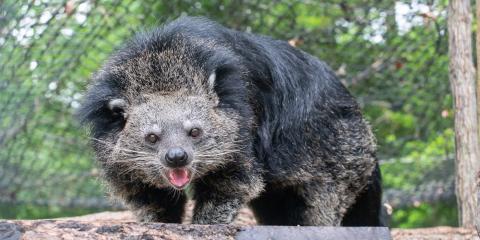
Claws and Paws Pathway Opens at Smithsonian’s National Zoo
Prowl the new Claws & Paws Pathway exhibit opening to the public Friday, May 27. Visitors will encounter a North American porcupine, bobcats and the Zoo’s newest residents — binturongs and Pallas’s cats.
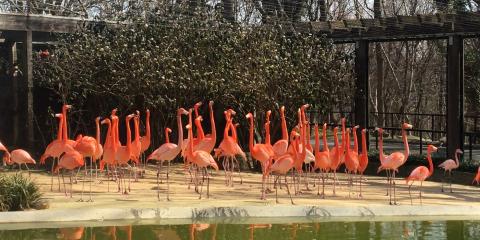
Tragic Loss of Animal Life at Smithsonian’s National Zoo
Staff at the Smithsonian’s National Zoo and Conservation Biology Institute are devastated and mourning the loss of 25 American flamingos and one Northern pintail duck killed by a fox yesterday in the Zoo’s outdoor flamingo habitat.
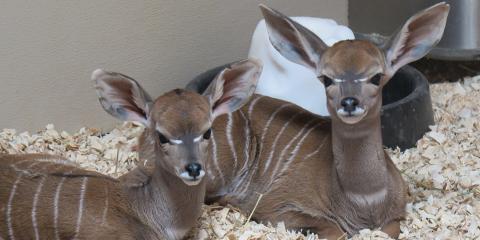
Lesser Kudu Calves and a Golden-Headed Lion Tamarin Are Born at Smithsonian’s National Zoo
Cheetah Conservation Station keepers at Smithsonian’s National Zoo and Conservation Biology Institute are rejoicing in the birth of two lesser kudu calves. For the second time in 6 months, Small Mammal House keepers are celebrating the birth of a golden-headed lion tamarin.

Giant Pandas Celebrate 50th Anniversary of the Giant Panda Program At Smithsonian’s National Zoo and Conservation Biology Institute
To commemorate 50 years of unprecedented achievement in the care, conservation, breeding and study of giant pandas, the Smithsonian's National Zoo’s in-residence giant panda family—Tian Tian, Mei Xiang, and cub Xiao Qi Ji received specially tailored fruitsicle cakes in honor of the “pandaversary.”
Media Advisory: Giant Panda 50th Anniversary Celebration April 16 and 17
Presentation of panda-friendly fruitsicle cakes to giant panda cub Xiao Qi Ji, his mother Mei Xiang and father Tian Tian.
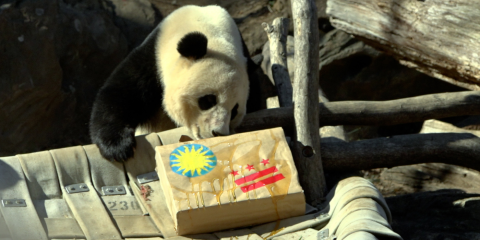
D.C. Council Declares April 2022 as "Giant Panda Month" in Washington, D.C.
On April 5, the D.C. Council passed a Ceremonial Resolution declaring April 2022, “Giant Panda Month” in recognition and celebration of the 50th anniversary of the Smithsonian’s National Zoo and Conservation Biology Institute’s giant panda conservation program.
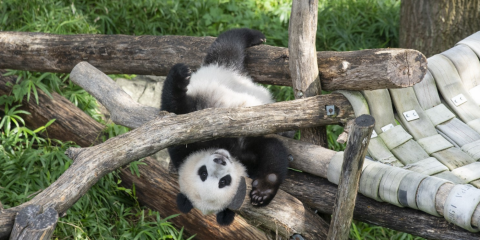
Smithsonian’s National Zoo and Conservation Biology Institute and National Head Start Association Partner to Reach Children Nationwide About Animals and Conservation
The Smithsonian’s National Zoo and Conservation Biology Institute (SNZCBI) and National Head Start Association (NHSA) have announced today, March 31, a yearlong partnership to provide free nature- and conservation-based learning opportunities about SNZCBI animals to young children in Head Start...

Celebrating 50 Years of Giant Pandas at the Smithsonian’s National Zoo and Conservation Biology Institute
The Smithsonian’s National Zoo and Conservation Biology Institute will celebrate 50 years of unprecedented achievement in the care, conservation, breeding and study of giant pandas April 16. Today is National Panda Day, a fitting start for the Zoo’s six-month-long celebration for its visitors and...
